At one time I used to keep notebooks with outlines for stories. But I found doing this somehow deadened the idea in my imagination: If the notion is good enough, if it truly belongs to you, then you can’t forget it . . . it will haunt you until it’s written. |
|
FRIDAY: My Book World | Marilynne Robinson's Novel Gilead
0 Comments
FRIDAY: My Book World | Marilynne Robinson's Novel Gilead
My Book World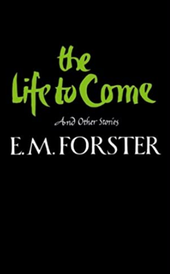 Forster, E. M. The Life to Come: And Other Stories. New York: Norton, 1987 (1972). Oliver Stallybrass offers in his introduction a bit of background concerning these stories. “On his death in June 1970, E. M. Forster left behind, at King’s College, Cambridge, England, a considerable corpus of unpublished literary work, complete and incomplete, and in a wide range of genres: novels (Maurice, published in 1971, and two substantial fragments), stories, plays, poems, essays, talks—to say nothing of letters, diaries and notebooks” (vii). A number of these stories—because Forster creates gay characters and situations that cannot be published at the time he writes them—are instructive for gay writers alive today. One, he is courageous, given his prodigious talent, to write them anyway, not to edit his mind, his heart, his soul. Even if he stashes them away or editors reject them, he senses perhaps that subsequent generations might read and appreciate them. The language and imagery are tame, of course, compared with any so-called gay fiction written since the early 1970s. But the fact that he is willing to portray two men together sexually, employing words like “member” for “penis,” is quite remarkable. Second, he provides a foundation for writers to come, people such as Paul Monette, who, in his book of essays, Last Watch of the Night, pays quick homage to Forster as a mentor. Forster is a formidable and lyrical writer whose work transcends all and deserves to be read by anyone, even fifty years following his death. NEXT FRIDAY: My Book World | Marilynne Robinson's Novel Gilead
TOMORROW: My Book World | E. M. Forster's The Life to Come and Other Stories
FRIDAY: My Book World | E. M. Forster's The Life to Come and Other Stories
FRIDAY: My Book World | E. M. Forster's A Life to Come and Other Short Stories
My Book World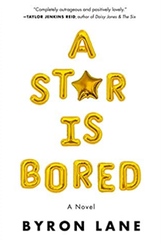 Lane, Byron. A Star Is Bored: A Novel. NY: Holt, 2020. Twenty-eight-year-old Charlie leaves his night job writing news copy for a Los Angeles TV station to become “personal assistant” to actor and movie star, Kathi Kannon. When one learns that author Lane once served as Carrie Fisher’s PA, one wants to turn Kathi’s voice into Carrie’s, Gracie Gold’s (Kathy’s mother) into Debbie Reynolds. As with any competent fiction, however, Lane creates two great characters that only reflect that he once knew them both, not that he’s out to recreate them. And this book is full of so many unforgettable voices. Begin with Kathi’s: off the bat she renames Charlie “Cockring.” From there, it’s only a short step to all the other outrageous things she says while he shops with her, travels with her, sees her in and out of hospitals for . . . well, read for yourself to find out what. Cockring’s head is full of voices: his father bellowing at him through the years by way of sentences in all caps: “WE ALL HAVE TO DO THINGS IN LIFE WE DON’T WANT TO DO!” (66); his own fears as he speaks to his inner Siri: “Hey, Siri, I want to impress. I want to be the best assistant. I want to rescue my failing grade” (77); the voice of Cockring’s Therapista; the voices of all the other PAs to Hollywood stars, all with their own nicknames, who collectively write what is known as The Assistant’s Bible, chock full of information every great PA should memorize. Cockring realizes early: “I have to be: to accept life as it happens, to be still and rest in knowing the universe is friendly, that good things will come, that good things are already here, that ‘good things’ include tidying her house, getting her car serviced, sorting her pills, surrendering my needs to hers” (91). At a certain point, however, Cockring will learn this lesson a bit too well, and, like all good young protagonists, will have a crisis of identity. How that turns out will have to be the reader’s adventure. I’m not spoiling it for anybody. For laughs and tears, for good feelings and bad, you must read this book.
NEXT FRIDAY: My Book World | E. M. Forster's A Life to Come
TOMORROW: My Book World | Byron Lane's Novel A Star Is Bored
FRIDAY: My Book World | Byron Lane's Novel A Star Is Bored
FRIDAY: My Book World | Byron Lane's Novel A Star Is Bored
My Book World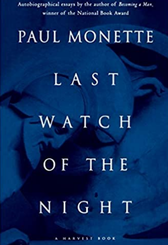 Monette, Paul. Last Watch of the Night: Essays Too Personal and Otherwise. New York: Harcourt, 1994. Dear Paul, I’m pretending that you gaze over my shoulder and peruse this piece about you and Last Watch of the Night. On pages 267-8, you discuss your hoarding of books, and I’m so glad to learn that I’m not the only one who does this. In recataloging my library of 1,300 books, a year ago, I realize that 300 of them remain unread, and, until now [during COVID, I am endeavoring to catch up, now having read fifty-six], yours has been one of them. I feel disgusted that I didn’t read it when it came out, but that was the first year of teaching AP English in high school, and my reading tasks were to stay at least one chapter ahead of my five classes of bright bulbs. So now to why I love this book and why it will never be dated. Your essays, at times, seem long and meandering, but readers, make no mistake, they are ordered; they have organization. I believe it is a nonlinear order in which, for example, in an essay about travel, you mention sojourning with all three of your long-term relationships: Roger, Stevie, and Winston. What I like about this sort of organization is it allows the essayist to discuss bigger pictures, larger topics. In the first essay entitled, “Puck,” ostensibly about yours and Roger’s Rhodesian ridgeback-Lab mix, the piece spans out, in which this “noble beast” (28) is the glue holding you two lovers together until Roger succumbs to AIDS. In another essay, “Gert,” you bring to light your first relationship with a lesbian, in this case, Gertrude Macy, a “maiden great-aunt” of one of your pupils. After she reads your novel manuscript, Gert asks, “Does it have to be so gay?” You answer: “Oh, indeed it did. The gayer the better. I launched into my half-baked credo, invoking the name of [E. M.] Forster, the writer to whom I was most in thrall, and the one who had failed me the most as well. When Forster decided he dare not publish Maurice, for fear of the scandal and what his mother would think; when he locked that manuscript in a drawer for fifty years until he died, he silenced much more than himself. He put up a wall that prevented us, his gay and lesbian heirs, from having a place to begin” (43). I tend to agree, but one must think about the consequences for Forster if he had released Maurice. Lost revenue? Loss of a career? His life? Prison time? A fallen Catholic yourself, in fact a defiant ex-Catholic, you discuss your relationship with several different “priests.” You cover gravesites and “The Politics of Silence.” “A One-Way Fare,” your paean to travel, becomes a metaphor for the one-way trip we all make through life. I love how you move from Mont-Saint-Michel to Noel Coward’s Private Lives, to a ten-line excerpt from that play, and on to Greece, all within a page—yet all connected.
Young gays need to read you, just as we read Forster and Isherwood, our forebears, so that they may know from whence they come. They must realize that the fight for freedom and equality is never over. It just shifts from one opponent to another. You fought to bring AIDS into a national focus, and perhaps the young will see that the COVID-19 battle is much the same: unless we change our national leadership COVID will be with us forever, just like AIDS is still with us. One must thank you for your fight, which ended all too soon. You would just now be enjoying a long-deserved homage at the ripe age of seventy-five. NEXT FRIDAY: My Book World | Byron Lane's Novel A Star Is Bored
TOMORROW: My Book World | Paul Monette's Last Watch of the Night
FRIDAY: My Book World | Paul Monette's Memoir Last Watch of the Night
FRIDAY: My Book World | Paul Monette's Memoir Last Watch of the Night
My Book World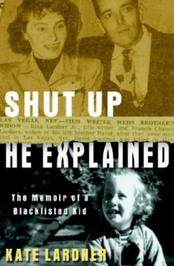 Lardner, Kate. Shut Up He Explained: The Memoir of a Blacklisted Kid. New York: Ballantine, 2004. About halfway through this book, I realized I had read it before—not because I recognized the material but because I found little thumbnail indentions indicating where I’d stopped a reading session. My first “review,” sketched in 2004, was rather short and not very positive: Poor writing and poor editing. What could have been enlightening and touching was scattered and uninteresting. Lardner keeps an emotional distance throughout that is not very pleasant. In a way, I still feel the same. The writing is fine enough; it just lacks a certain depth. Perhaps that is the point where a better editor might have helped the author. Much of the book is really about Kate Lardner’s father, Ring Lardner, Jr., a distinguished screenwriter who is blacklisted in the 1950s because he refuses to answer the question at a hearing whether he is or ever has been a communist. He spends twelve months in prison simply for attempting to practice his First (or Fifth) Amendment right to speak (or not). And, of course, such an event does have harmful effects on a burgeoning family: A wife, herself a working actor, who ceases to be offered film roles because she is related to Ring; a daughter and two sons who need him to balance out an impatient mother who, though loving, is also bound and determined to have her own career. What is most troubling, I think, is the pacing. Of ten chapters, “The Penal Interlude,” is the longest at 120 pages. Conclusions that the author could draw about the effects on her as a “blacklisted kid” are missing or shortchanged. At the end of the book, Lardner gives a hurried account of her college years, her stumbling around to find out what she wishes to do with her life, thumbnail sketches of her two marriages, and boom, we’re done. Either the book should focus more on her father, or she should have a book longer than 272 pages, in order to discuss how being a blacklisted kid has affected her entire life (she’s about sixty at the time she writes the book). This time around I don’t notice the “emotional distance” as much as I do in 2004, but there exists rather a flippant tone that seems to reduce the import of what she is saying about one of the most destructive periods in US political history and its ramifications for her family. Perhaps it’s her way of dealing. NEXT FRIDAY: My Book World | Paul Monette's Last Watch of the Night: Essays Too Personal and Otherwise.
TOMORROW: Kate Lardner's Shut Up He Explained
FRIDAY: My Book World | Kate Lardner's Shut Up He Explained: The Memoir of a Blacklisted Kid
FRIDAY: My Book World | Kate Lardner's Shut Up He Explained: The Memoir of a Blacklisted Kid
|
AUTHOR
Richard Jespers is a writer living in Lubbock, Texas, USA. See my profile at Author Central:
http://amazon.com/author/rjespers Archives
June 2024
Categories
All
Blogroll
Websites
|
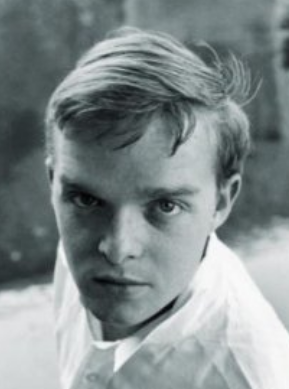


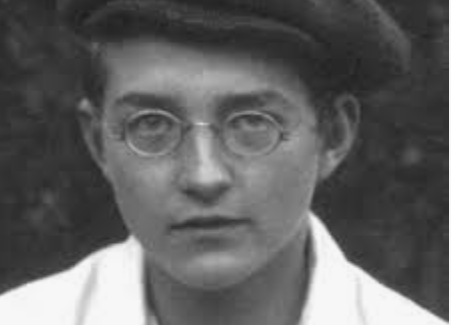


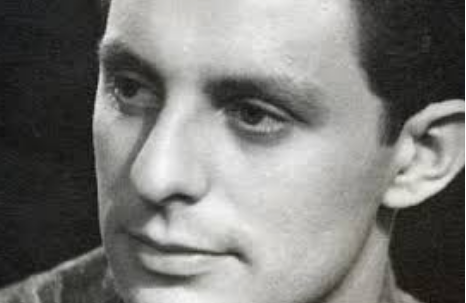







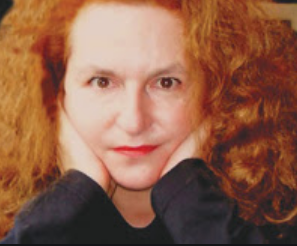
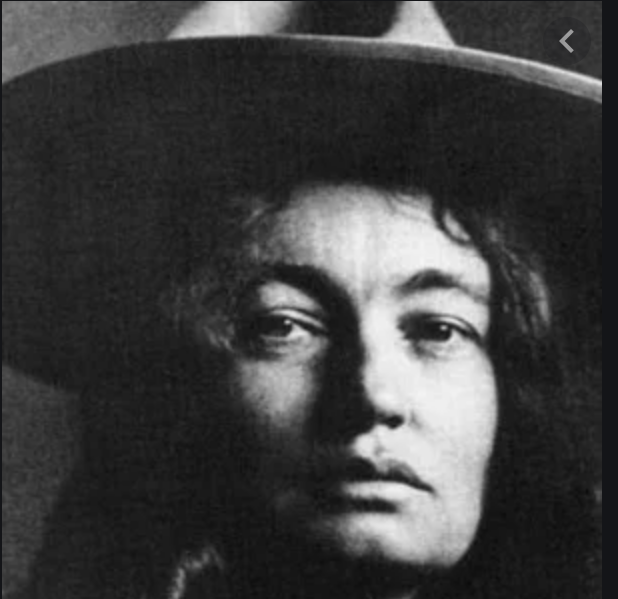




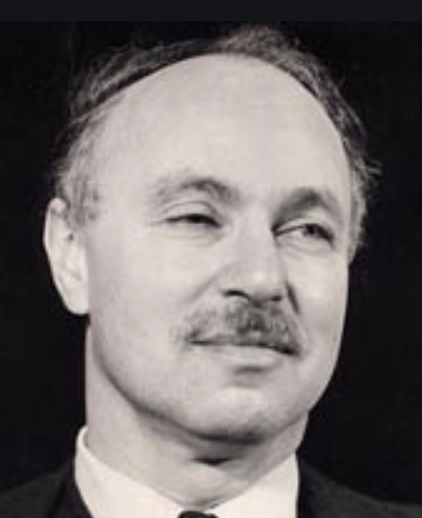
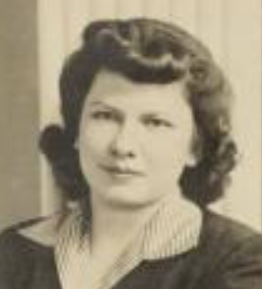

 RSS Feed
RSS Feed